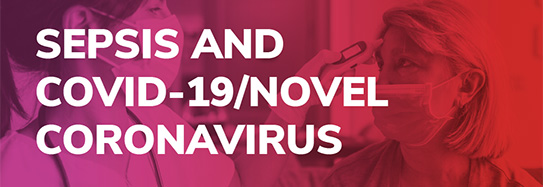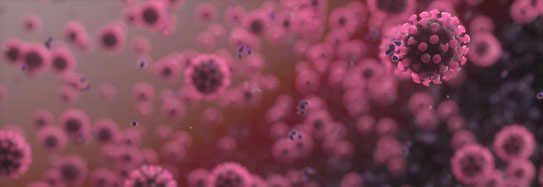When the novel coronavirus, SARS-Co-2, which causes COVID-19, began to spread, the healthcare community didn’t know what to expect. It quickly became obvious that COVID-19 was a serious infection. It also turned out that severe COVID-19 is viral sepsis.
Coronaviruses themselves are not new and for the most part, they aren’t usually serious. The common cold is a coronavirus, for example. But so are more serious infections, like SARS (severe acute respiratory syndrome) and MERS (Middle East respiratory syndrome). What these infections all have in common is their symptoms: coughing, shortness of breath, difficulty breathing, and fever. When a new coronavirus is identified, it’s called a novel coronavirus until it’s given an official name.
What makes this coronavirus special?
COVID-19, first discovered in December 2019, was a new virus with no known previous history. Scientists had to scramble to find the virus origins, how it behaved, and what might kill it or prevent it from spreading. Although it had similar symptoms to seasonal influenza, SARS, MERS, and other illnesses, COVID-19 was not the same. And because it was a new virus, scientists had a lot to learn about the infection.
Since the spread of COVID-19 began, new mutations began to circulate. This is not unusual. As viruses spread and contaminate more people, they often mutate as well. There are several COVID-19 virus mutations.
How serious is COVID-19?
The short answer is “it is very serious.” While many people who contract the virus experience mild to moderate symptoms of coughing, shortness of breath, and fever, this coronavirus affects some people harder than others. This could lead to viral sepsis and result in death. In addition, people with COVID-19 can develop secondary bacterial infections, like pneumonia, which can also lead to sepsis.
Some children who contract COVID-19 also develop a condition called multisystem inflammatory syndrome (MIS-C). It occurs when “different body parts can become inflamed, including the heart, lungs, kidneys, brain, skin, eyes, or gastrointestinal organs,” according to the CDC.
On September 21, 2020, the American Medical Association added the following to their website: “Surviving severe COVID-19 means surviving viral sepsis. And while there is little published data on long-term outcomes of severe COVID-19, what is known is that recovering from sepsis caused by other pathogens is a long and difficult process that includes, among other things, increased odds of cognitive impairment and functional limitations—even down to inability to bathe, toilet or dress independently.”
Sepsis, which was often called blood poisoning, is the body’s life-threatening response to infection. Like strokes or heart attacks, sepsis is a medical emergency that requires rapid diagnosis and treatment.
Suggested Citation:
Sepsis Alliance. Sepsis and TOPIC. 2023. https://www.sepsis.org/sepsisand/coronavirus-covid-19/
Updated December 12, 2023.









































